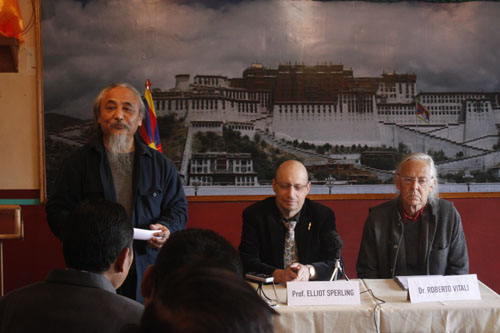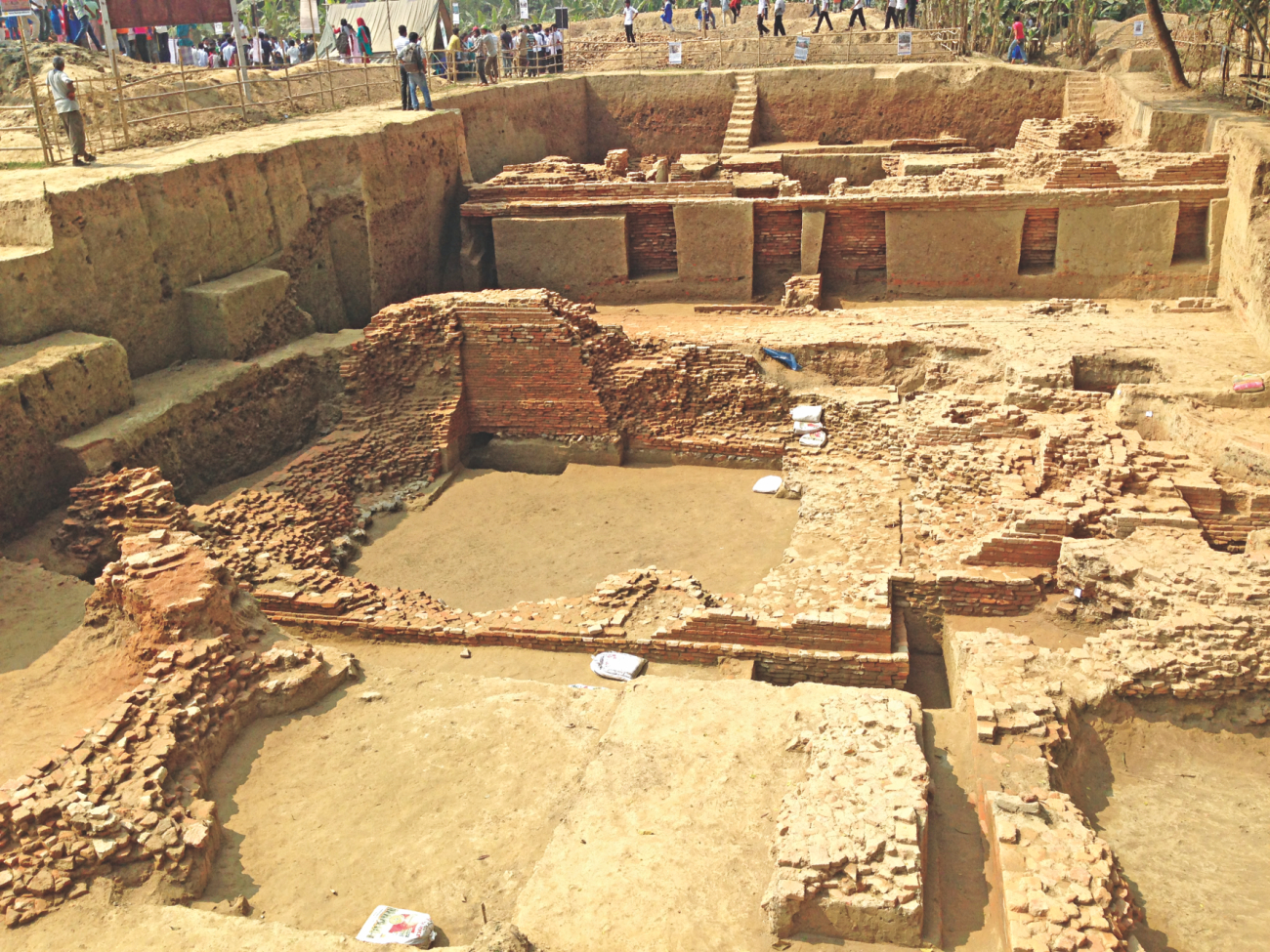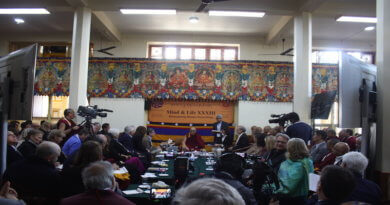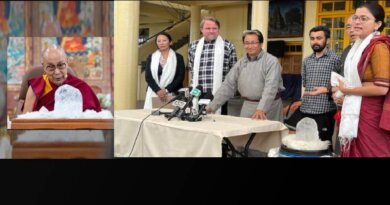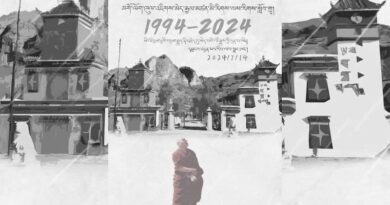Amnye Machen Institute dedicates new publication to Professor Elliot Sperling
DHARAMSALA, Feb 24: Amnye Machen Institute, a Dharamsala-based institute renowned for its work in the field of Tibetan Studies launched its new publication “Trails Of The Tibetan Tradition: Papers for Elliot Sperling” on Feb 23 to honor Elliot Sperling, a noted American Tibetologist.
The book launch held at the conference hall of Hotel Tibet was attended by Professor Elliot Sperling, Dr Roberto Vitali, the editor of the book, Tibetan intellectuals, journalists and several westerners interested in Tibetan Studies.
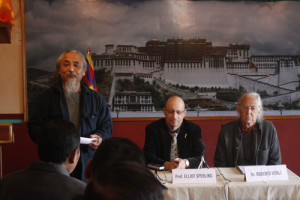
The 596-page book is a collection of essays written by Professor Sperling’s friends and colleagues as a “bond of affinity” (Tib: Dam Tsig). The collection consists of essays written by 31 scholars from 10 countries, including 5 Tibetan scholars on various topics such as Tibetan history, medicine and magical rituals.
While addressing the gathering, Tashi Tsering, Director of Amnye Machen Institute introduced Professor Sperling as a distinguished scholar of Tibetan Studies and touched on the historical origins of Tibetan Studies and how Tibetan scholars in the 1970s struggled to voice their opinions on different aspects of Tibetan studies at international conferences.
Recalling the first conferences held solely for Tibetan Studies, Tashi Tsering said:
“In 1977, for the first time, several young western scholars of Tibetan Studies held a conference in Zurich, Switzerland titled, ‘Seminar of Young Tibetologists’ where only two Tibetan scholars were present. And two years later, for the first time, an international conference on Tibetan Studies was held in Oxford in 1979. The second international conference on Tibetan studies was held in 1982 at Columbia University in which I had the opportunity to attend along with four other Tibetan scholars. When another conference was held in 1985 in Germany, Chinese government for the first time allowed a Tibetan scholar, Dungkar Rinpoche from inside Tibet to attend the conference.
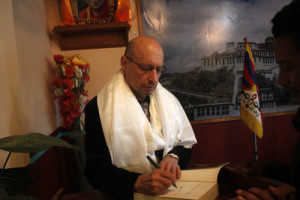
Speaking about the introduction of Tibetan language to be used for presentations during conferences on Tibetan Studies, he said:
“When the 5th conference was held in Japan in 1989, I gave my presentation in Tibetan language and other Tibetan scholars followed suite, including a Japanese Tibetologist who also gave his presentation in Tibetan. It was in protest against the official languages to be used during the conference because before that conference, only English, French and German were allowed for presentations. It doesn’t bode well if the Tibetan language is not allowed to be used because the conference is on Tibetan Studies, so I carried out a peaceful protest by speaking in Tibetan.”
Dr Vitali, who took two years to edit the book, thanked Professor Sperling for his many years of work and dedication in the field of Tibetan Studies and others who were involved in the publication of the book and spoke on the importance of Tibetan Studies and why it should be pursued.
“Writers operate in absence. They retreat from the mundane engagements in order to work. Elliot is an exception to the rule, for he has combined his scholarly research and writing on a vast array of documents in different Asian languages with his involvement in Tibet’s current affairs as an acute commentator. He has left an imprint during the many years he has dedicated to his areas of interest. His research and writings on the history of Tibet (both old and current) with particular reference to the Sino-Tibetan relations and the study of Khams are standards in these areas of study,” writes Dr Vitali in the editorial to the book.
The book bears a black and white picture of Dharamsala taken by Professor Sperling in the early seventies and on the inclusion of the picture on the cover Dr Vitali writes:
“Stepping back to his beginnings, Dharamsala’s role as a training camp in free thinking, aspiration to justice and commitment is the reason for the inclusion of a picture of this locality, taken by Elliot in the early seventies, on the book cover. Dharamsala has been the site for many of our generation’s first direct encounter with Tibetans and their culture, a formative starting point. It has left a mark upon many researchers and definitely upon Elliot, who is keen to remember the deep-seated influence it has had upon him. This place and its people still mean much to him despite the persistent contradictions and unsolved problems,”
Elliot Sperling is Associate Professor of Central Eurasian Studies and an expert on the history of Tibet and Tibetan-Chinese relations at Indiana University.

